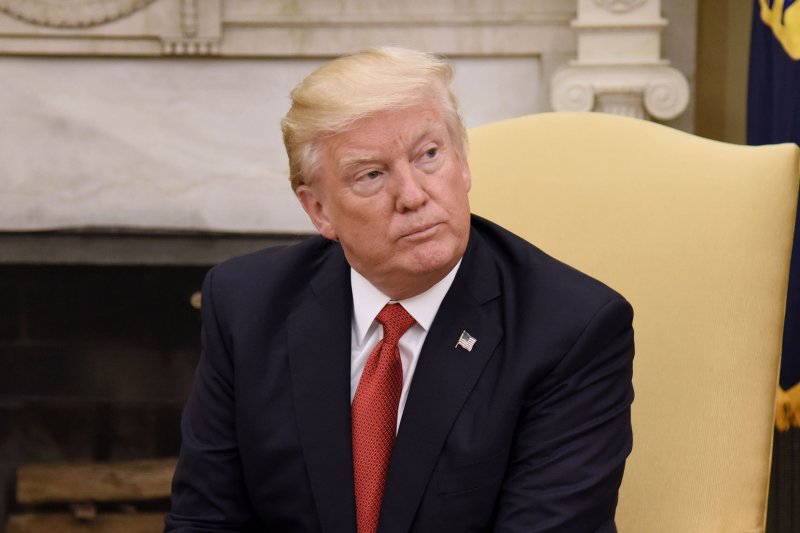Policy priorities embraced by U.S. President Donald Trump could add to the geopolitical risk for Middle East oil players like Iran, which holds presidential elections on Friday. Photo by Olivier Douliery/UPI |
License Photo
May 19 (UPI) -- With the focus Friday on Iranian presidential elections, a geopolitical risk report finds U.S. policy might be what's putting regional oil plans in peril.
A report Friday from Verisk Maplecroft finds there is a global risk from policies embraced by U.S. President Donald Trump that prioritize domestic development over global initiatives. The report says key oil players like Venezuela are at risk because of internal political upheavals.
"Middle East oil producers also remain exposed to the risk that greater stateside production stemming from Washington's 'America First' energy policy will keep prices suppressed, limiting their ability to stem popular discontent through social spending," the report read.
Trump has pushed hard for more oil and natural gas developments at home, signing a series of executive orders that favor U.S. steel in national energy infrastructure, pulling back on climate regulations and calling for a review of offshore areas deemed off limits by former President Barack Obama. More aggressive on the foreign policy stage than his predecessor, Trump's administration has also kept sanctions pressures in place on Iran, which is the only member of the Organization of Petroleum Exporting Countries with room for production growth under a deal to curb output.
Iranian President Hassan Rouhani could secure a second term in office with elections Friday, though challenges from conservative candidates are real as many of the economic benefits from easing global sanctions are slow to emerge. European companies like Austria's OMV are in line to step up activity in Iran, but Verisk Maplecroft said some investors are nervous given the current state of affairs.
"The 2015 nuclear agreement [with Iran] has so far survived the election of Donald Trump as U.S. president, but could in all likelihood not survive the removal of one of its key architects and proponents [Rouhani]," Torbjorn Soltvedt, a principal regional analyst for Verisk Maplecroft, said in a statement.
Rouhani leads in a race to secure a second term, though his closest rival, conservative cleric Ibrahim Raisi, has the tacit support of Ayatollah Ali Khamenei, the country's supreme leader. A report this week from RBC Capital Markets found Rouhani's critics pointing to potential that's failed to deliver, with unemployment rates running in the double digits in a population that's relatively young.
"A second Rouhani term would almost certainly pave the way for further foreign investment in Iran's oil and gas sector," Soltvedt said. "The main challenges facing foreign companies will, however, remain the same: the threat posed by U.S. sanctions and uncertainty over the resilience of the nuclear agreement."















